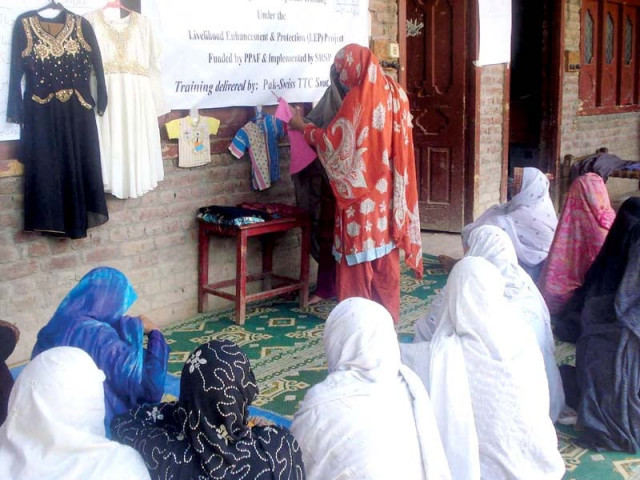Empowered women challenge traditional roles
Despite progress, challenges like gender discrimination and societal restrictions remain

In Pakistan, the role of women is rapidly evolving. Traditionally, women were expected to manage homes and raise children, but today, they are making significant contributions across all sectors like business, healthcare, education, technology, and more.
They are excelling in fields once dominated by men, challenging stereotypes and redefining their roles in society. Historically, women were primarily seen in professions like teaching or nursing. Today, they are forging paths in engineering, IT, and robotics. Many have become successful pilots, doctors, lawyers, and leaders in creative industries like filmmaking, writing, and fashion design. Pakistani women are also breaking new ground in sports on international platforms.
This shift is driven by a changing societal attitude. As families grow more supportive and access to education improves, more women are entering a variety of professions. Today, many women are running businesses, working in startups, and holding leadership roles across industries, contributing to a more progressive and inclusive future for the nation.
While progress is being made, societal restrictions and gender discrimination still limit women's full potential in Pakistan. Although the global trend of women entrepreneurship is on the rise, the situation in Pakistan remains concerning. Women make up just 23-25% of the labour force, with only 1% being entrepreneurs. Despite the increasing number of women earning university degrees, only 25% enter the workforce, reflecting a vast underutilisation of talent.
Sana, a successful food blogger, emphasises the importance of consistency for success. She believes food blogging empowers women by offering income opportunities and social freedom, with many women in Pakistan now earning through partnerships and sponsored posts, creating careers and global identities.
Fauzia Kalsoom Rana, Senior Producer for Spotlight with Munizae Jahangir on Aaj TV, also shares her insights on succeeding in news production. "Identifying newsworthy stories and clear communication with the team are key," she explains.
Despite these successes, Pakistan continues to face significant barriers. According to the World Bank, female labour force participation is only 22.8%, one of the lowest in the world. The deeply embedded patriarchal structure, where men are seen as breadwinners and women as homemakers, restricts women's independence. Furthermore, women face discrimination, harassment, and challenges travelling to work, especially in rural areas.
Education is another critical obstacle. The United Nations reports that the literacy rate for women in Pakistan is only 57%, compared to 70% for men. Cultural beliefs, poverty, early marriage, and limited school infrastructure contribute to low enrollment and high dropout rates among girls. Without education and training, women are left without the skills needed for better-paying jobs or entrepreneurial ventures.
Ifrah Hameed, a graphic designer, suggests master design principles, industry-standard software and building an online presence. She says women's representation in design is increasing, with many women leading their own design studios.
Fatima Nabeel, an 18-year-old entrepreneur from Lahore, shares how she started her business at 16 using her savings. "Young girls should step out of their comfort zones and aim for financial independence," she says.
Mahnoor Qureshi, a broadcast journalist, has faced numerous challenges, including personal attacks and betrayal in her career.



















COMMENTS
Comments are moderated and generally will be posted if they are on-topic and not abusive.
For more information, please see our Comments FAQ